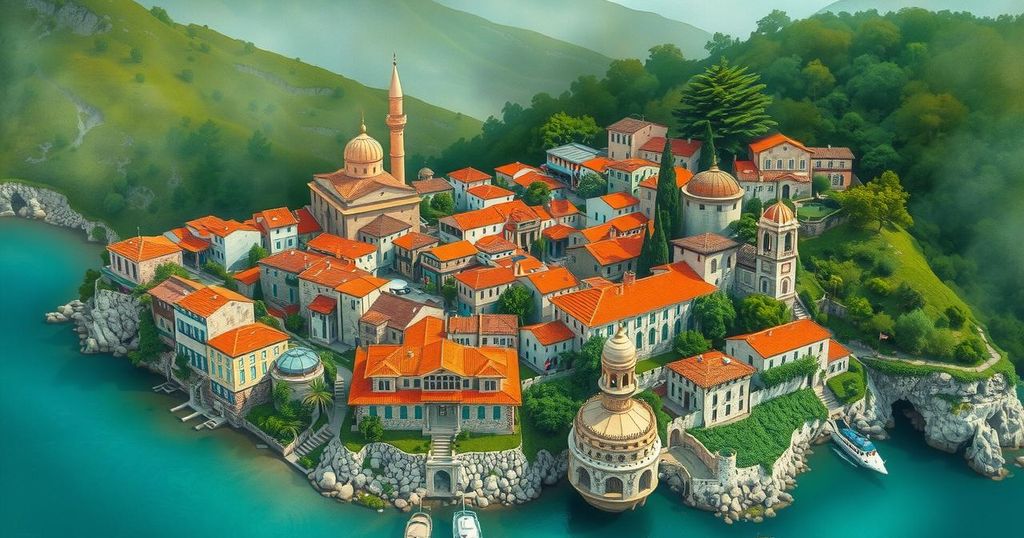The M23 rebels have seized Walikale, a key mining town in eastern DRC, marking their westward advance with minimal resistance. Local sources report casualties and a mass exodus of residents seeking safety. The situation escalates amid calls for a ceasefire from DRC and Rwanda, as diplomatic efforts to halt the conflict intensify. The ongoing crisis has led to significant humanitarian ramifications, including the displacement of tens of thousands of individuals.
The M23 rebels have successfully captured Walikale, a crucial mining hub located in eastern Democratic Republic of the Congo (DRC), marking their westernmost advance thus far. This seizure occurred with minimal resistance, largely attributed to support from the Rwandan army. Local media reports confirm that security forces have retreated to avoid potential human losses, with military personnel now stationed approximately 30 kilometers away in Mubi.
According to civil society activist Fiston Misona, the rebels’ presence in the city has resulted in multiple casualties, with at least seven injured individuals currently receiving treatment at the general hospital. An M23 source proclaimed full control over Walikale, while the DRC military has currently not commented on the situation.
This strategic takeover occurs shortly after Congolese President Felix Tshisekedi and Rwandan President Paul Kagame’s call for an immediate ceasefire, enhancing the tension in the region. Walikale, located 125 kilometers from eastern DRC’s largest city, Goma, significantly enhances M23’s positioning within the DRC, bringing them within proximity to Kisangani, the nation’s fourth-largest city.
Reports indicate that thousands of residents are fleeing, attempting to reach the neighboring province of Kisangani for safety. The recent spike in hostilities has forced mining operations, such as those of Alphamin at its Bisie mine, to cease and evacuate personnel in light of the violence.
The DRC is experiencing its most severe conflict since the 1998-2003 war, prompting intensified diplomatic efforts from neighboring countries and foreign entities to restore peace. The UN has accused Rwanda of supporting M23 with military supplies, a claim that the Rwandan government refutes.
Originally slated for direct discussions, M23 withdrew from talks with the DRC due to EU sanctions affecting some of its leaders. Corneille Nangaa, leader of the Congo River Alliance, underscored the rebels’ determination, stating, “We will fight until our cause is heard.” He expressed skepticism regarding the results of the Doha meeting, emphasizing that unless tangible resolutions emerge, the conflict remains their priority.
The recent capture of Walikale by M23 rebels exemplifies a troubling escalation in the conflict within eastern DRC, raising significant humanitarian concerns. With both military and civilian casualties on the rise, the urgency for diplomatic interventions has become critical. The situation remains precarious, as M23’s advances threaten not only regional stability but also the lives of countless civilians who are now fleeing to safety. Therefore, international diplomatic efforts must prioritize establishing a lasting ceasefire and addressing the underlying causes of the conflict.
Original Source: www.aljazeera.com




